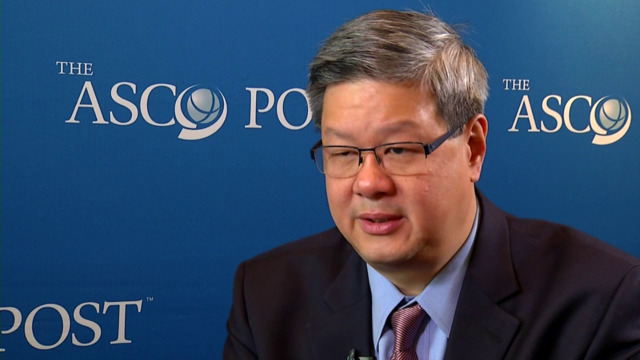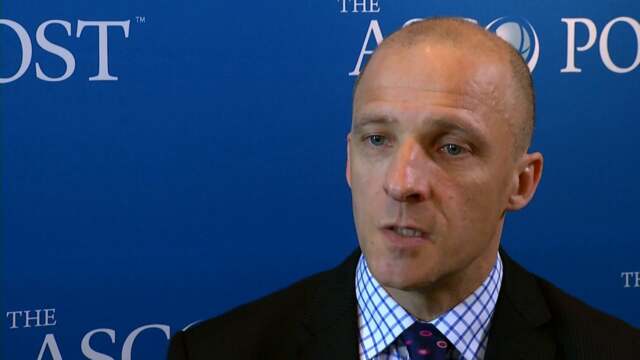Robert W. Carlson, MD, and John A. Gentile, Jr, on Milestones of NCCN
2015 NCCN Annual Conference
Robert W. Carlson, MD, Chief Executive Officer, National Comprehensive Cancer Network, and John A. Gentile, Jr, Chairman, Harborside Press, LLC, discuss the early days of NCCN, controversies that surrounded the first meeting, oncologists’ embrace of the guidelines, and how the organization has evolved over the past 20 years.
Axel Grothey, MD
Axel Grothey, MD, of the Mayo Clinic Cancer Center, discusses how the NCCN Guidelines can help oncologists make strategic choices of the various agents available to treat metastatic colorectal cancer, individualizing patient care.
Wui-Jin Koh, MD
Wui-Jin Koh, MD, of the Fred Hutchinson Cancer Research Center and the Seattle Cancer Care Alliance, discusses the program to adapt NCCN guidelines to regions of the world with different resource availability. The first guideline to be adapted in this way is for cervical cancer, which is prevalent in the developing world.
Anthony J. Olszanski, RPh, MD
Anthony J. Olszanski, RPh, MD, of the Fox Chase Cancer Center, discusses the advances in immunotherapy generally and for melanoma in particular.
Eric Jonasch, MD
Eric Jonasch, MD, of The University of Texas, MD Anderson Cancer Center, discusses the progress being made in kidney cancer treatment and the clinical trials that focused on sunitinib, sorafenib, and everolimus, among others.
Jerald P. Radich, MD
Jerald P. Radich, MD, of the Fred Hutchinson Cancer Research Center and Seattle Cancer Care Alliance discusses the evolution in treating and monitoring CML and whether monitoring at 3 and 6 months will ultimately prove useful.





